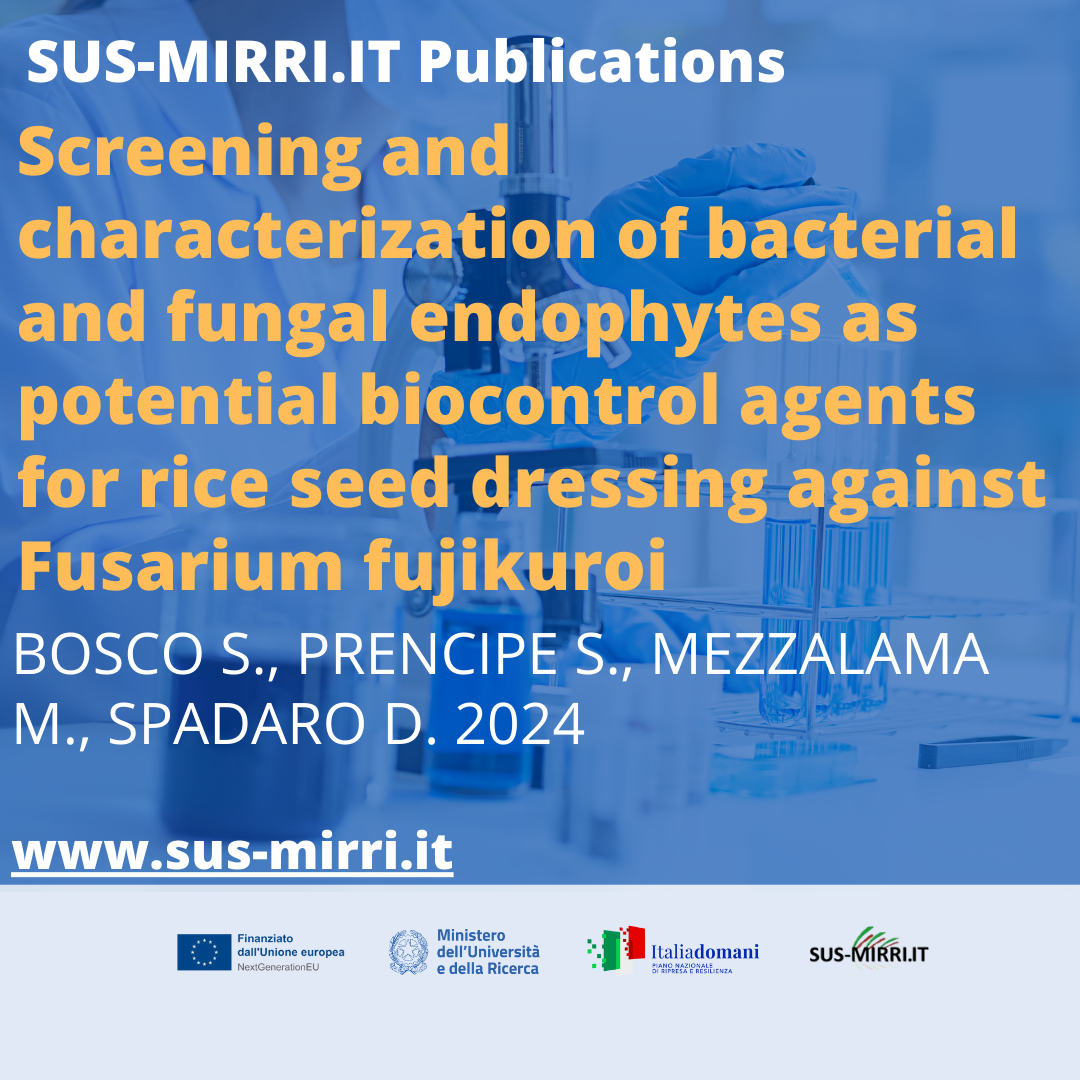BOSCO S., PRENCIPE S., MEZZALAMA M., SPADARO D. 2024 Screening and characterization of bacterial and fungal endophytes as potential biocontrol agents for rice seed dressing against Fusarium fujikuroi Biological Control 196, 105580 DOI: 10.1016/j.biocontrol.2024.105580
Abstract
Rice bakanae disease, caused by Fusarium fujikuroi, nowadays represents the main threat for rice seed producers. With recent European guidelines progressively reducing the use of chemical fungicides, new disease management strategies are urgently needed. The plant endosphere constitutes a source of potential microbial biocontrol agents (BCAs) against fungal pathogens. Endophytic antagonists, with their close association with the host, are more likely to withstand harsh field conditions, the main bottleneck of BCAs selection. For this reason, 135 fungal and bacterial endophytes were isolated from rice seeds and shoots. As previously observed, in vitro screenings rarely correlate with biocontrol efficacy in planta, thus each isolate was tested in vivo under controlled conditions via seed treatment against F. fujikuroi to select endophytes that significantly reduced bakanae disease severity. Among the 18 selected isolates, 12 were excluded after a further screening step based on their potential role as plant or human pathogens. The 5 remaining strains, belonging to Epicoccum layuense, Epicoccum catenisporum, Microbacterium testaceum and Methylobacterium oryzae species, were tested in vitro to assess their capacity to inhibit F. fujikuroi through agar diffusible or volatile antimicrobial compounds. The biocontrol efficacy of these endophytes was further confirmed in vivo, by observing a significant decrease in disease severity and incidence, as well as an increase in total fresh biomass. This represents the first report of E. layuense, E. catenisporum, M. testaceum and M. oryzae strains with biocontrol potential against F. fujikuroi as promising biological seed dressing alternatives to chemical fungicides.
Read more at: https://www.sciencedirect.com/science/article/pii/S1049964424001452



